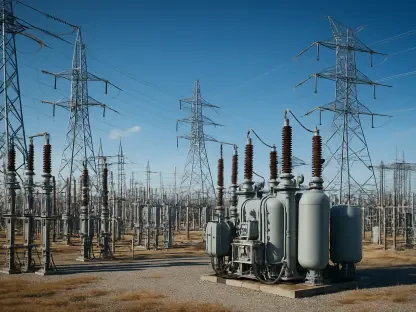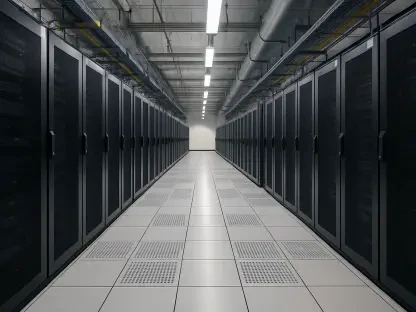In an era of burgeoning energy demands and a heightened focus on sustainability, Georgia Power’s 2025 Integrated Resource Plan (IRP) emerges as a comprehensive and strategic blueprint for the future. This plan, filed with the Georgia Public Service Commission (PSC), is designed to support an extraordinary projected load growth in the state while ensuring the provision of clean, safe, reliable, and affordable energy. As part of this ambitious framework, Georgia Power outlines its vision and investment strategies for the next decade and beyond, focusing on critical infrastructural changes, upgrades to existing power plants, the inclusion of renewable resources, and enhanced grid reliability measures.
The IRP’s main objectives reflect Georgia Power’s commitment to navigating the complexities of a rapidly evolving energy landscape. With an anticipated load growth of around 8,200 megawatts (MW) over the next six years, the plan addresses the urgent need to expand and modernize the state’s energy infrastructure. The outlined upgrades and investments are essential for maintaining system reliability and meeting the increasing energy demands driven by Georgia’s expanding economy and growing energy-intensive sectors, such as data centers. Georgia Power’s strategy to incorporate renewable energy sources and advance grid capabilities highlights its dedication to reducing carbon emissions and promoting sustainable energy practices. It’s a forward-thinking approach that sets the stage for a resilient and efficient energy future for Georgia.
Addressing Projected Load Growth
Georgia Power’s IRP projects an “extraordinary” electrical load growth of approximately 8,200 megawatts (MW) over the next six years, significantly higher than previous estimates. This growth mirrors the increasing energy demands driven by the state’s expanding economy and the rise of energy-intensive sectors like data centers, which require a robust and reliable energy infrastructure. To accommodate this significant surge, Georgia Power has outlined a detailed plan to ensure that the state’s energy infrastructure can support rapid economic growth and increased electricity consumption, aiming to meet the needs of all residents and businesses effectively.
To address this burgeoning load, Georgia Power is making substantial investments in its generation fleet, which includes extended power uprates for Plants Hatch and Vogtle, enabling an additional 112 MW of nuclear power to be delivered. Additionally, enhancements to Plant McIntosh will add 268 MW of capacity through cleaner natural gas, supporting a transition to more environmentally friendly power generation. Equally important is the continued operation and upgrades of coal and natural gas units at Plants Bowen and Scherer, which remain integral parts of Georgia Power’s plan. These investments are designed not only to increase capacity but also to ensure the reliability and efficiency of Georgia’s power generation capabilities for the foreseeable future.
Modernizing the Hydro Fleet
Georgia Power places a significant emphasis on the modernization of its hydroelectric generating units as part of its comprehensive strategy to meet future energy demands. The IRP outlines extensive refurbishments to turbines, generators, and other equipment across nine existing hydro plants. These upgrades are critical for maintaining the long-term efficiency and reliability of hydroelectric energy, which is a valuable emission-free resource. By investing in modernization efforts, Georgia Power aims to ensure that its hydro fleet remains a vital component of the overall energy mix, capable of delivering clean power reliably for at least another 40 years.
The modernization efforts are part of a broader strategy to optimize all aspects of Georgia Power’s energy generation portfolio. This approach not only preserves the existing hydroelectric infrastructure but also enhances its performance, sustainability, and integration with other energy sources. By incorporating newer technologies and undertaking critical upgrades, Georgia Power positions its hydro fleet to contribute effectively to the state’s energy needs. These efforts demonstrate the utility’s commitment to environmental stewardship and operational excellence, reflecting an understanding of the role hydroelectric power plays in achieving long-term sustainability and reliability goals.
Expanding Renewable Energy Portfolio
Georgia Power is advancing its commitment to renewable energy by aiming to procure a total of 4,000 MW of renewable resources by 2035, including at least 1,100 MW proposed in the current IRP. This vision aims to significantly expand the company’s renewable portfolio to approximately 11,000 MW, marking a substantial increase in clean energy capacity. The expansion of renewable resources is a cornerstone of Georgia Power’s strategy to reduce carbon emissions and promote sustainable energy practices. It aligns with broader trends towards clean energy solutions, underpinning the company’s efforts to become a leader in the transition to a more sustainable energy future.
The IRP’s focus on renewable energy is further supported by the incorporation of advanced battery energy storage systems (BESS). These systems enhance the flexibility and reliability of renewable energy sources, ensuring that energy generated from solar and wind power can be stored and used when demand is high. Battery storage plays a critical role in balancing the grid and smoothing out the variability inherent in renewable energy generation. Georgia Power’s commitment to integrating more than 1,500 MW of BESS into its energy mix underscores the importance of these technologies in achieving a resilient and sustainable energy system. This approach reflects a comprehensive understanding of how to leverage renewable resources and advanced technologies to meet future energy demands efficiently and reliably.
Integration of Battery Energy Storage Systems
As part of its comprehensive strategy, Georgia Power recognizes the growing importance of energy storage and plans to incorporate new battery energy storage systems (BESS) into future capacity requests for proposals (RFPs). Building on existing initiatives to add more than 1,500 MW of BESS, these systems are crucial for improving grid dynamics and energy reliability. Battery energy storage provides a flexible solution to store energy generated from renewable sources, such as solar and wind power, ensuring that it can be discharged when demand is high. The integration of BESS enables better management of energy supply and demand, contributing to a more stable and resilient grid.
The role of battery storage in the energy landscape cannot be overstated, particularly as the share of renewable energy in the overall energy mix increases. BESS technology allows for the efficient and reliable use of renewable energy, addressing the intermittency issues associated with solar and wind power. By incorporating BESS into its infrastructure, Georgia Power is enhancing its ability to provide consistent and reliable energy. This forward-thinking approach ensures that the benefits of renewable energy are fully realized, supporting the company’s goals of sustainability and carbon reduction. The implementation of BESS is a key element of Georgia Power’s strategy to create an adaptable and robust energy system capable of meeting future demands.
Enhancing Grid Reliability
The IRP includes Georgia Power’s 10-year transmission plan, focusing on maintaining a reliable transmission system through substantial improvements across more than 1,000 miles of transmission lines. This plan is essential for supporting the integration of new power generation sources and ensuring consistent power delivery throughout the state. The proposed improvements include the adoption of innovative technologies designed to enhance grid capacity and reliability, particularly in response to the increased incorporation of solar generation and battery energy storage systems (BESS). These efforts are crucial for maintaining a resilient grid capable of adapting to evolving energy demands and mitigating challenges such as severe weather events.
Grid reliability remains paramount for Georgia Power, as it directly impacts the ability to provide uninterrupted service to customers. The substantial investments in transmission infrastructure are part of a broader effort to modernize the grid and enhance its resilience. By incorporating advanced grid-enhancing technologies, Georgia Power aims to accommodate the growing capacity needs while ensuring that the grid remains secure and efficient. This includes deploying solutions that can better manage the complexities of a diversified energy portfolio, ultimately leading to improved operational performance and customer satisfaction. These initiatives reflect Georgia Power’s dedication to maintaining a high standard of service and preparing for future energy challenges.
Customer-Centric Solutions
In an era of growing energy demands and increased sustainability focus, Georgia Power’s 2025 Integrated Resource Plan (IRP) stands out as a comprehensive strategy for the future. Submitted to the Georgia Public Service Commission (PSC), this plan aims to accommodate the state’s significant projected load growth while providing clean, safe, reliable, and affordable energy. As part of this ambitious strategy, Georgia Power details its vision and investment strategies for the next decade, focusing on essential infrastructural changes, upgrades to current power plants, integrating renewable resources, and enhancing grid reliability.
The IRP reflects Georgia Power’s commitment to navigating the complexities of a fast-changing energy landscape. With an expected load growth of around 8,200 megawatts (MW) over six years, it addresses the urgent need to expand and modernize the state’s energy infrastructure. Essential upgrades and investments are crucial for maintaining system reliability and meeting Georgia’s growing energy demands, driven by sectors like data centers. The plan’s emphasis on renewable energy integration and advanced grid capabilities underscores its commitment to reducing carbon emissions and promoting sustainable practices, setting the stage for a resilient and efficient energy future for Georgia.









